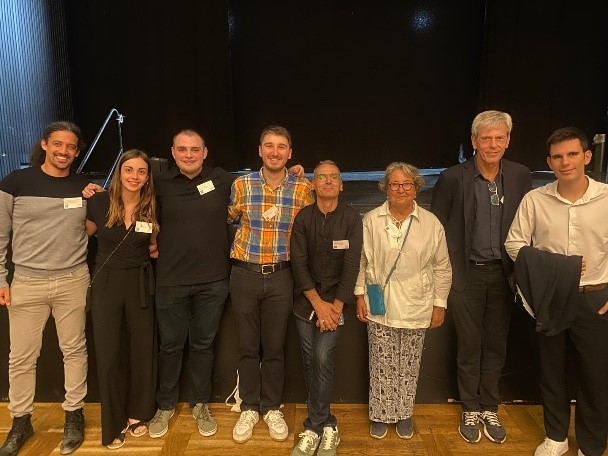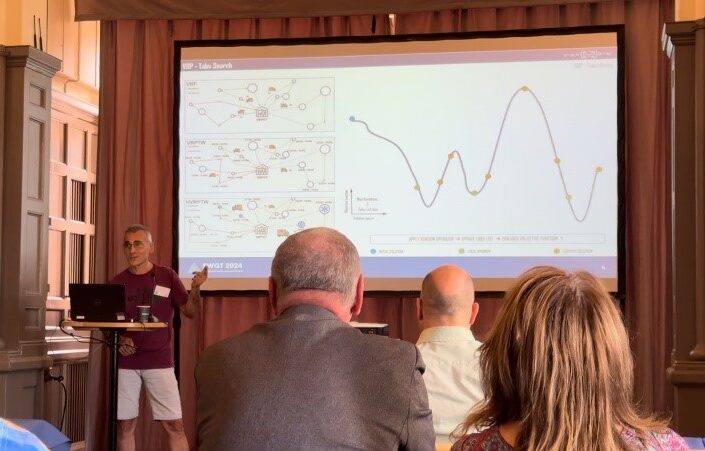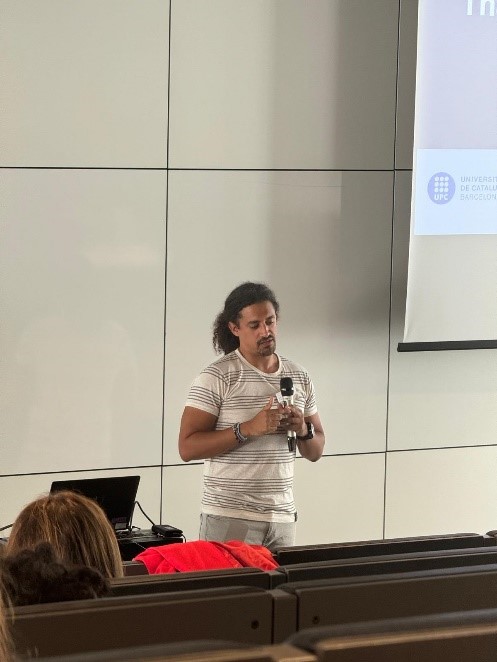On September 4, 5 and 6 the Euro Working Group on Transportation was held in Lund, Sweden. This year, from inLab FIB, we not only had the opportunity to attend and study the different advances produced in recent years in the field of mobility, but we also presented three scientific papers related to projects developed in the laboratory.
The beginning of each day was marked by a keynote presentation by Dr. Wai Yuen Szeto, professor at the University of Hong Kong, where he presented the creation of a model to solve the problem of positioning stations for small electric vehicles, such as e-scooters and bicycles, taking into account the penalty time for empty and full stations.

On the second day, we attended a new presentation by Dr. Otto Anker Nielsen, professor at the Technical University of Denmark. In this presentation we were able to observe an analysis of the factors that affect the decision to take public transport and how safety – or the feeling of safety – affected the decision to take public transport.
Finally, on the third day, we were able to attend the presentation of Dr. Oded Cats, professor at the Delft University of Technology in the Netherlands. He explained the lack of supply of night trains from 2020, due to Covid-19. He also presented a model to be able to choose the best option for the planning of lines to connect the whole of Europe by high-speed train. The ultimate goal of the project is to reduce the amount of emissions produced by airplanes and replace them with rail transport.
Regarding the articles developed within inLab FIB, Mercè Vila and Víctor Diví presented the project Stork: A Flexible Optimization Tool for Solving Multiple Vehicle Routing Problem Variants, which solves the Vehicle Routing Problem (VRP) in a modal way, allowing the addition of constraints according to the customer’s needs.

Jordi Montero presented Improving Routing Optimization Algorithms: A Business Rules Based System to Generate Initial Solutions. In this presentation, the attendees were able to see the resolution of the VRP through an unusual methodology: production rules. At the end of the presentation, Ferran Gonzalez answered questions from the audience.

Finally, the next day, Jamie Arjona presented Data-driven Strategies to Enhance Real Bus Passenger Occupancy Services using Weather and Flight Information, a project that sought to predict the occupancy of the public transport service in Mallorca.
In conclusion, these conferences have served to deepen the knowledge of our team within the world of logistics, showing the quality projects developed within the laboratory and growing the logistics network that connects us with the rest of the world.
